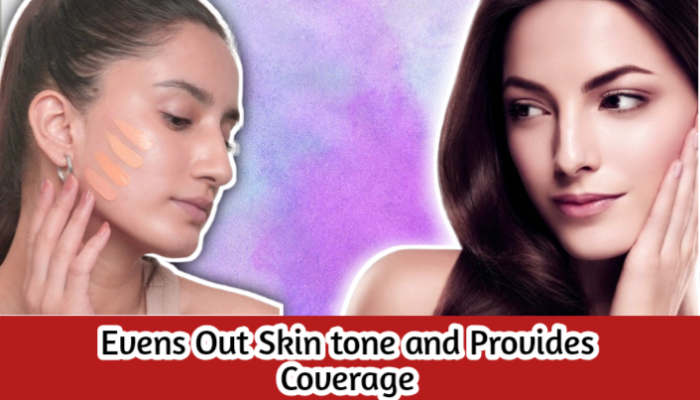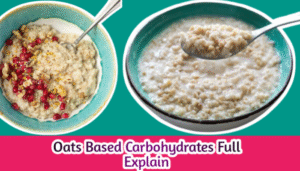Even skin tone is essential for a polished and radiant look. Uneven skin, blemishes, dark spots, and redness can make makeup appear patchy or heavy. Using the right foundations, concealers, and techniques helps achieve a smooth canvas, boosting confidence and enhancing overall appearance.
1. Common Skin Tone Issues
1.1 Redness and Rosacea
- Causes: Inflammation, sensitive skin, or rosacea
- Appears as blotchy, red patches
- Makeup challenge: Requires color correction and concealer
1.2 Hyperpigmentation
- Causes: Sun exposure, hormonal changes, acne scars
- Appears as dark spots or uneven patches
- Makeup challenge: Needs high-coverage products or targeted concealers
1.3 Uneven Texture
- Rough or bumpy skin affects foundation application
- Solution: Primers and skincare smooth the surface
1.4 Dark Spots and Scars
- Post-acne marks, freckles, or pigmentation
- Targeted coverage with concealer and foundation layering
2. Foundations: The Primary Tool for Coverage
2.1 Types of Foundations
- Liquid: Versatile, blendable, suitable for all skin types
- Cream: Medium to full coverage, ideal for dry skin
- Powder: Lightweight, controls oil, ideal for oily skin
- Stick / Mousse: Precise application, long-lasting
2.2 Coverage Levels
- Sheer: Light correction for minor discoloration
- Medium: Hides mild pigmentation and blemishes
- Full: Masks severe uneven tone, scars, or hyperpigmentation
2.3 Finishes
- Matte: Controls shine, perfect for oily skin
- Dewy: Hydrates and gives a glowing look
- Satin: Natural finish, balanced for all skin types
3. Concealers for Targeted Coverage
3.1 Types of Concealers
- Liquid: Lightweight, great under eyes
- Cream: Medium to full coverage for blemishes
- Stick: Precise, long-lasting
- Color-Correcting: Neutralizes unwanted tones
3.2 Choosing the Right Shade
- Blemishes: Match skin tone exactly
- Dark Circles: One to two shades lighter
- Pigmentation: Use a corrector shade before foundation
4. Color-Correcting Techniques
4.1 Green for Redness
- Neutralizes red blemishes or rosacea
4.2 Peach/Orange for Dark Circles
- Cancels blue or purple undertones under eyes
- Lighter skin: Peach; Medium to dark skin: Orange
4.3 Lavender for Dullness
- Brightens yellowish or sallow skin for a radiant look
5. Primers and Base Preparations
5.1 Benefits of Primers
- Creates smooth surface for foundation
- Minimizes pores, fine lines, and uneven texture
- Enhances long-lasting coverage
5.2 Types of Primers
- Mattifying: Reduces shine for oily skin
- Hydrating: Moisturizes and smooths dry areas
- Color-Correcting: Neutralizes undertones before foundation
- Illuminating: Adds subtle glow for radiant skin
6. Application Techniques for Smooth, Even Coverage
6.1 Tools for Application
- Brushes: Precision and control
- Sponges: Blends seamlessly for a natural finish
- Fingers: Gentle warmth for under-eye or small areas
6.2 Layering and Blending
- Apply thin layers, build coverage gradually
- Blend edges well to avoid harsh lines
6.3 Setting with Powder or Spray
- Translucent powder prevents sliding or fading
- Setting spray locks makeup for all-day wear
7. Skin Type Considerations
7.1 Oily Skin
- Use matte foundations and powders
- Primers help control excess shine
7.2 Dry Skin
- Hydrating or dewy foundations
- Avoid heavy powders that emphasize dryness
7.3 Combination Skin
- Matte T-zone, hydrating elsewhere
- Buildable formulas for balance
7.4 Sensitive Skin
- Use hypoallergenic, fragrance-free products
- Patch test new products
8. Skincare Products That Support Coverage
8.1 Serums and Moisturizers
- Hydrate skin, smooth texture for better foundation
- Ingredients like hyaluronic acid and niacinamide improve coverage
8.2 Sunscreens
- Protect against UV-induced pigmentation
- Always apply SPF before makeup
8.3 Treatments for Pigmentation
- Vitamin C, licorice extract, or retinol reduce uneven tone over time
- Helps reduce the need for heavy coverage
9. Tips for Long-Lasting, Natural Finish
9.1 Setting Products
- Use translucent powder or spray to lock coverage
9.2 Touch-Ups
- Use compact powder or concealer for mid-day fixes
9.3 Avoiding Caking and Patchiness
- Proper skin prep, gradual layering, and blending
- Hydrate dry areas and under eyes before applying makeup
10. Conclusion
Achieving an even skin tone and flawless coverage requires a balance between skincare and makeup:
- Skincare: Treats underlying causes like pigmentation, dryness, and oiliness
- Makeup: Foundations, concealers, primers, and color-correctors provide immediate results
- Techniques: Correct application, blending, and setting ensure a natural, long-lasting finish











h7neeb